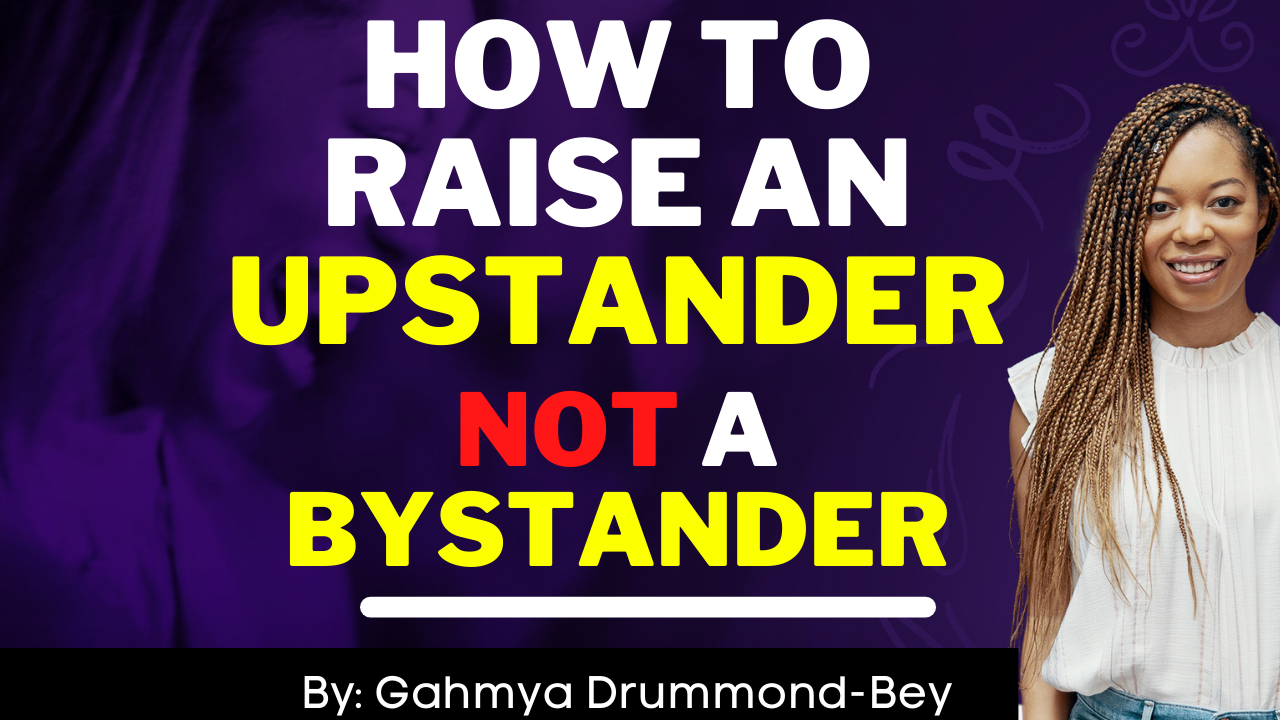How to Raise an Upstander Not a Bystander

First thing's first, we all make mistakes. Some of us may even feel triggered or paralyzed when it comes to speaking up for ourselves or others.
Don't let the title of this post, shift your focus. No one is only a bystander. It could happen as a moment in time, that you learn from. But, the goal is to have the tools that are necessary to help the young people in your life to choose to be an upstander and to be aware of the moments when they choose to be a bystander. We can learn from awareness. We can unpack with Awareness. We can grow with awareness.
Today, I want to take my last post a bit further and really dive into the differences between when someone is being an upstander and when someone is simply being a bystander.
When engaging in conversations with the younger people in your life, add the violence of silence into the conversation.
Oftentimes, when some of the teens in my life have very pained relationships with their family members, it is because of silence or inaction during times when another family member mistreated them.
Bystanders are often in families more often than you may realize. And it is witnessing people they love, act as bystanders that often compel younger people to 1.) lack the confidence to speak up for themselves or others, 2.) Feel disempowered 3.) Feel emotionally triggered or "stuck" when they witness bullying. Pay close attention to the scenarios offered in today's guide.

An upstander is a person who stands up or speaks up when someone is being wronged.
If someone is being bullied, an upstander would intervene or call for help.

When someone is a bystander, they see or know that something is happening, but they don't help or intervene.








